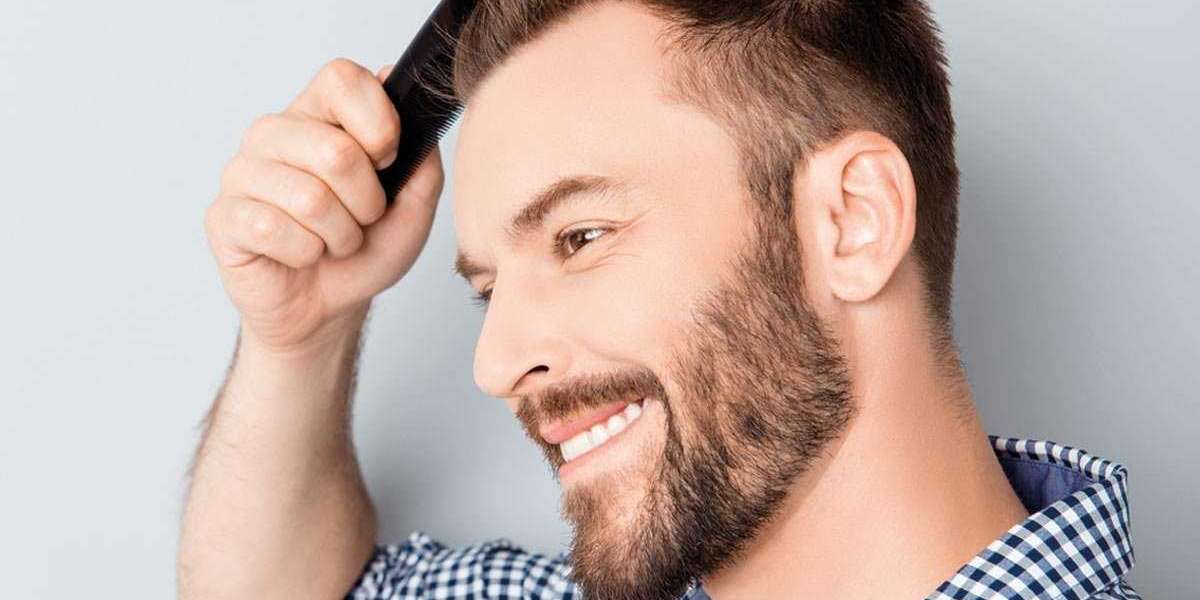Identifying the Cause of Hair Loss
Understanding the cause of your hair loss is the first step in determining the right treatment. Common causes include:
- Genetics: Male and female pattern baldness is often inherited.
- Hormonal Imbalances: Hormones play a significant role in hair growth. Conditions such as pregnancy, menopause, thyroid issues, or polycystic ovary syndrome (PCOS) can trigger hair loss.
- Stress: Chronic stress is a well-known trigger for temporary hair loss.
- Nutritional Deficiencies: A lack of essential nutrients like iron, vitamin D, and biotin can cause hair to thin or fall out.
- Medical Conditions: Alopecia areata, scalp infections, and other illnesses can contribute to hair loss.
Once you've identified the cause, you can take appropriate steps to stop hair loss and support hair health.
Effective Treatments to Stop Hair Loss
There are various ways to stop hair loss, ranging from medical treatments to lifestyle changes. Here are some proven methods:
1. Minoxidil
Minoxidil is one of the most widely used over-the-counter treatments for hair loss. It works by stimulating hair follicles, encouraging hair growth, and slowing down the process of hair shedding. It’s suitable for both men and women and can be applied topically as a foam or liquid.
Regular use of minoxidil can produce visible results after a few months, but it must be used continuously to maintain hair growth. Hair Loss Treatment in Islamabad often recommends minoxidil as part of a broader hair restoration plan.
2. Platelet-Rich Plasma (PRP) Therapy
PRP therapy is a cutting-edge treatment that uses your own blood’s plasma to stimulate hair growth. The platelets are injected into your scalp to activate the hair follicles, helping to reverse hair thinning and even regrow hair. PRP therapy is particularly effective for individuals with early-stage hair loss.
Specialized clinics offering Hair Loss Treatment in Islamabad have seen successful outcomes with PRP therapy, making it a popular choice for non-surgical hair restoration.
3. Hair Transplants
For individuals with more advanced hair loss, hair transplants offer a permanent solution. In this surgical procedure, hair follicles are taken from areas of the scalp with thick hair (often the back of the head) and transplanted to thinning or bald areas. The transplanted hair grows naturally over time and can last a lifetime with proper care.
While hair transplants are more invasive than other treatments, they provide long-term results that are natural-looking and effective.
4. Laser Therapy
Laser therapy, also known as low-level laser therapy (LLLT), uses red light to stimulate hair follicles and promote regrowth. This non-invasive treatment is suitable for men and women with mild to moderate hair loss. Laser therapy can be used in conjunction with other treatments like minoxidil or PRP for enhanced results.
LLLT is available at professional clinics like Hair Loss Treatment in Islamabad, where it’s often recommended as part of a comprehensive hair loss treatment plan.
5. Improve Your Diet
What you eat has a direct impact on the health of your hair. A diet rich in vitamins and minerals such as iron, zinc, biotin, and omega-3 fatty acids can help strengthen your hair and prevent further loss. Foods such as leafy greens, nuts, eggs, and fish are excellent choices for promoting healthy hair growth.
If you suspect that your hair loss is linked to a nutritional deficiency, consider taking supplements to address the gap in your diet. Consult a healthcare professional before starting any new supplement regimen to ensure it’s right for you.
6. Reduce Stress
Stress can lead to a type of hair loss known as telogen effluvium, where large amounts of hair shed due to physical or emotional stress. To combat stress-related hair loss, try incorporating relaxation techniques into your daily routine, such as yoga, meditation, or deep breathing exercises.
Getting enough sleep and engaging in regular physical activity can also help reduce stress levels and promote healthier hair.
7. Use Gentle Hair Care Practices
How you care for your hair can affect hair loss. Avoid excessive heat styling, tight hairstyles (like ponytails or braids), and harsh chemical treatments, as these can weaken your hair and cause it to break or fall out. Instead, opt for gentle hair care products that are free from sulfates and parabens and use a wide-tooth comb to detangle your hair gently.
Regular scalp massages can also improve circulation to the hair follicles, promoting healthier and stronger hair growth.
Conclusion
Stopping hair loss requires a combination of medical treatments, lifestyle changes, and gentle hair care practices. Whether you opt for topical solutions like minoxidil, advanced therapies like PRP, or lifestyle adjustments such as improving your diet, there are many ways to address hair loss effectively.
For those seeking professional guidance, Royal Cosmetic Surgery Pk offers a variety of advanced treatments tailored to your specific needs. With the right approach, you can regain your hair and restore your confidence.








